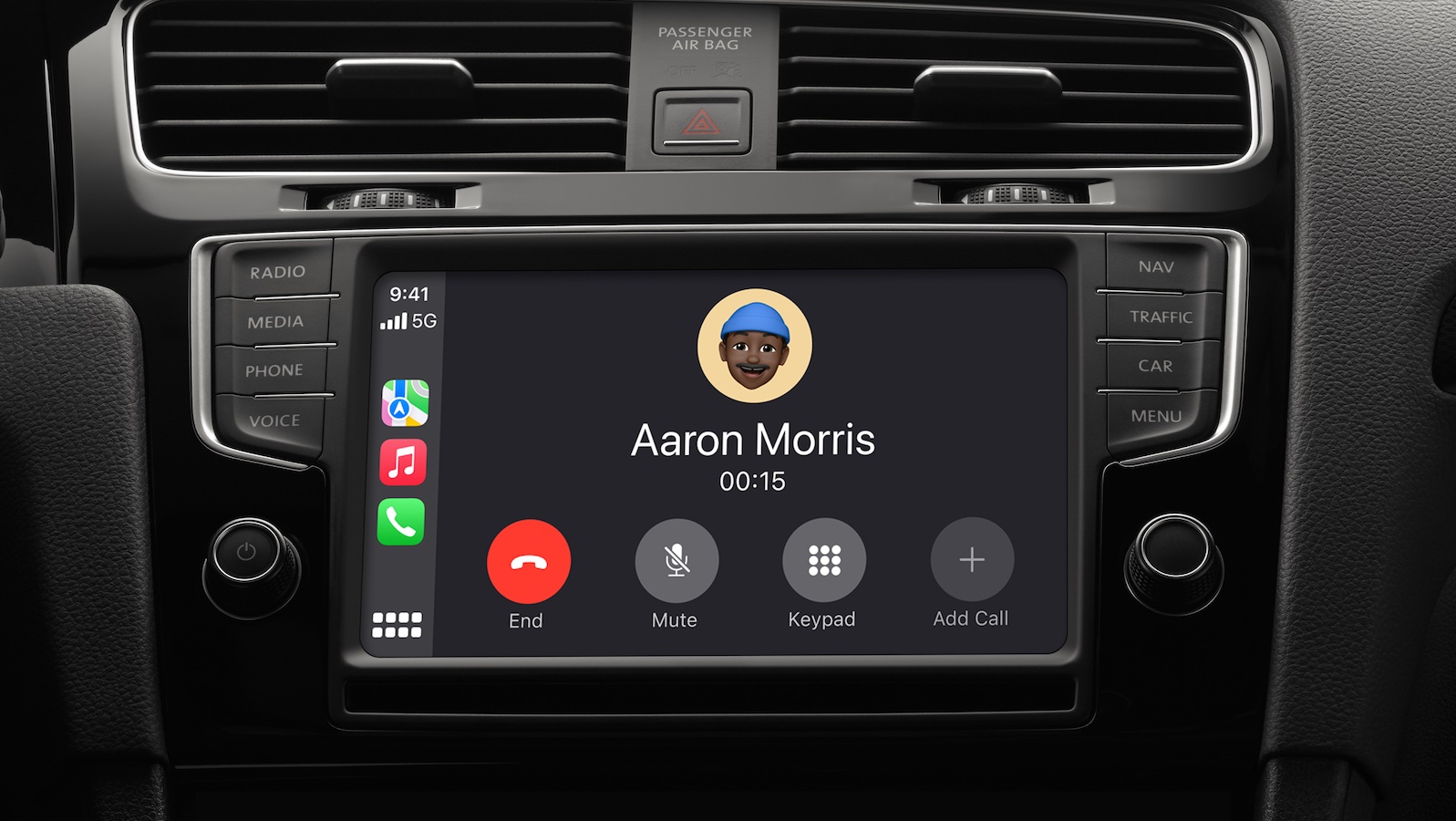Earlier this year, General Motors (GM) announced plans to phase out Apple's CarPlay and Android Auto in its future electric vehicles, with the company instead relying on an infotainment system co-developed with Google. This has not been a popular decision with iPhone users, and today, GM provided some additional insight into the decision in a discussion with MotorTrend.

According to Tim Babbitt, GM's head of product for infotainment, GM has driver safety in mind. CarPlay and Android Auto can have issues like bad connections, slow response times, compatibility issues, and connectivity problems, leading drivers to be distracted from the road with smartphone troubleshooting.
Babbitt claims that drivers will be less likely to pick up their phones with a built-in system that does not rely on a service like CarPlay, leading to improved safety on the road. GM does not have any data to prove that an infotainment system is less distracting than CarPlay, nor has it done any testing.
Babbitt cited J.D. Power data suggesting issues with CarPlay and Android Auto are common complaints from vehicle owners, with customers often blaming the vehicle manufacturer rather than Apple or Google.
The infotainment system that GM plans to adopt instead of CarPlay will have integrated Google apps, including Google Maps and Google Assistant for voice commands, rather than a third-party navigation system. As MotorTrend points out, eliminating CarPlay will provide GM with more control over driver data, and it will allow GM to offer subscription services and apps that allow for purchases of food, gas, and other sundries.
Back in August, GM said that choosing not to offer CarPlay would give it more information about charge state information to assist with navigation routing and provide a better user experience.
CarPlay will be eliminated in electric vehicles under the Buick, Cadillac, Chevrolet, and GMC brands. Combustion vehicles from GM will continue to support CarPlay until they are phased out in favor of an all-electric lineup in 2035.
This article, "GM Says It's Nixing CarPlay to Make Drivers Safer" first appeared on MacRumors.com
Discuss this article in our forums
Source: TechRadar

According to Tim Babbitt, GM's head of product for infotainment, GM has driver safety in mind. CarPlay and Android Auto can have issues like bad connections, slow response times, compatibility issues, and connectivity problems, leading drivers to be distracted from the road with smartphone troubleshooting.
Babbitt claims that drivers will be less likely to pick up their phones with a built-in system that does not rely on a service like CarPlay, leading to improved safety on the road. GM does not have any data to prove that an infotainment system is less distracting than CarPlay, nor has it done any testing.
Babbitt cited J.D. Power data suggesting issues with CarPlay and Android Auto are common complaints from vehicle owners, with customers often blaming the vehicle manufacturer rather than Apple or Google.
The infotainment system that GM plans to adopt instead of CarPlay will have integrated Google apps, including Google Maps and Google Assistant for voice commands, rather than a third-party navigation system. As MotorTrend points out, eliminating CarPlay will provide GM with more control over driver data, and it will allow GM to offer subscription services and apps that allow for purchases of food, gas, and other sundries.
Back in August, GM said that choosing not to offer CarPlay would give it more information about charge state information to assist with navigation routing and provide a better user experience.
CarPlay will be eliminated in electric vehicles under the Buick, Cadillac, Chevrolet, and GMC brands. Combustion vehicles from GM will continue to support CarPlay until they are phased out in favor of an all-electric lineup in 2035.
Related Roundup: CarPlay
Related Forum: HomePod, HomeKit, CarPlay, Home & Auto Technology
This article, "GM Says It's Nixing CarPlay to Make Drivers Safer" first appeared on MacRumors.com
Discuss this article in our forums
Source: TechRadar